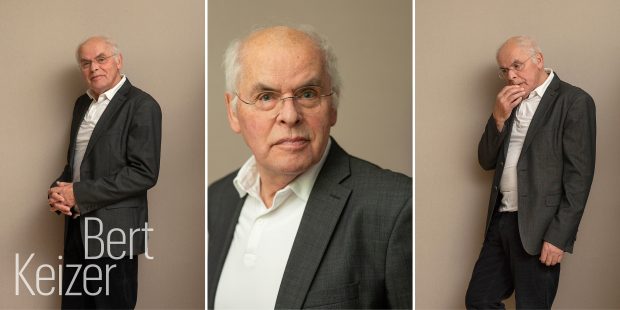June 14, 2025
How often can you perform euthanasia and still remain ethical?
Interview with Bert Keizer – one of the Netherland’s most outspoken & experienced euthanasia doctors.
There is considerable consensus about quantity in medicine.
If you go to hospital for an operation, you want to know that the doctor who is going to perform it is competent.
Nobody wants to be operated on by a doctor who has never done it before.
I don’t know the details of the discussion about where paediatric heart surgery should be performed, but I do know that we want to concentrate such complex procedures in one centre because that leads to a routine that automatically improves quality.
So if you are on your way to the hospital to have your hernia operated on, find out how many times the surgeon has performed the procedure and how often bleeding, infection or detachment has occurred.
Also ask how many patients came back to her because the hernia returned.
Beginners really need to be able to gain experience.
No, you won’t get hold of these figures.
It’s not just a matter of fear that people will discover that Dr. Jansen is a bungler while Pietersen is a perfect surgeon.
It also has to do with patient groups that are sometimes difficult to compare.
Jansen mainly operated on obese elderly people, who were also heavy smokers, with diabetes, high blood pressure, moderate heart function and poor kidneys.
Pietersen, on the other hand, focused mainly on young athletes.
What do you say?
Yes, I’m afraid you’re right.
This is mainly about shielding Jansen from any possible mistakes.
How did we arrive at this? Quantity.
In somatic medicine, quantity is almost always a plus. We cannot escape the difficult circumstance that there will soon be no more experienced surgeons if we only want to be operated on by experienced surgeons.
We really have to give beginners the opportunity to gain experience.
In euthanasia country, you hear very different things about quantity. After euthanasia, there is sometimes a somewhat relaxed atmosphere.
Everyone was dreading it, including the doctor.
And when it’s all over, someone lights a cigarette, the dog jumps on the bed, drinks are poured, the doctor calls the coroner, others turn their phones back on, and then the same two questions are often asked of the doctor and the nurse: are you paid for this?
And the second question: how often do you do this?
Relative thoughtlessness is actually recommended
The answer to the first question is: of course we are paid, because insurance companies have discovered that nothing is as cheap as a patient who has left the planet.
The answer to the second question is more difficult.
How often can you perform euthanasia and still remain ethical?
If someone does five a week, that’s about two hundred a year, and we start to frown.
That cannot be right.
Even if the recipients do not notice anything negative about this doctor’s exceptionally high production figures, we still think it is wrong.
In the case of an inguinal hernia, the relative thoughtlessness with which the surgeon “automatically” performs the necessary procedures is to be recommended. You can compare it to the ease with which you walk around your own home.
But euthanasia is a personal act in which a certain discomfort indicates a lack of quality.
After all, it has never happened before that this woman, or this man, in the company of their loved ones, deliberately ended their life.
It is a unique event, in the same way that a hernia is not unique.
I think that much of the hesitation surrounding this topic can be traced back to the fact that we experience every human personality as a one-off event.
That uniqueness weighs all the more heavily on the possibility of ending life now that we are no longer so convinced of an afterlife.
Helped seventeen people
The end of a human life really means the end.
Death spelled with a Capital D!
And I think that is the reason why we shy away from what a colleague described as “large-scale rearrangement”.
That is only possible if a certain hernia routine creeps in. Which means that you are not fully aware of what you are doing.
As for my own numbers: last year, I helped seventeen people. Yes, I count them. But if you ask me, I’d say twelve, I think.
